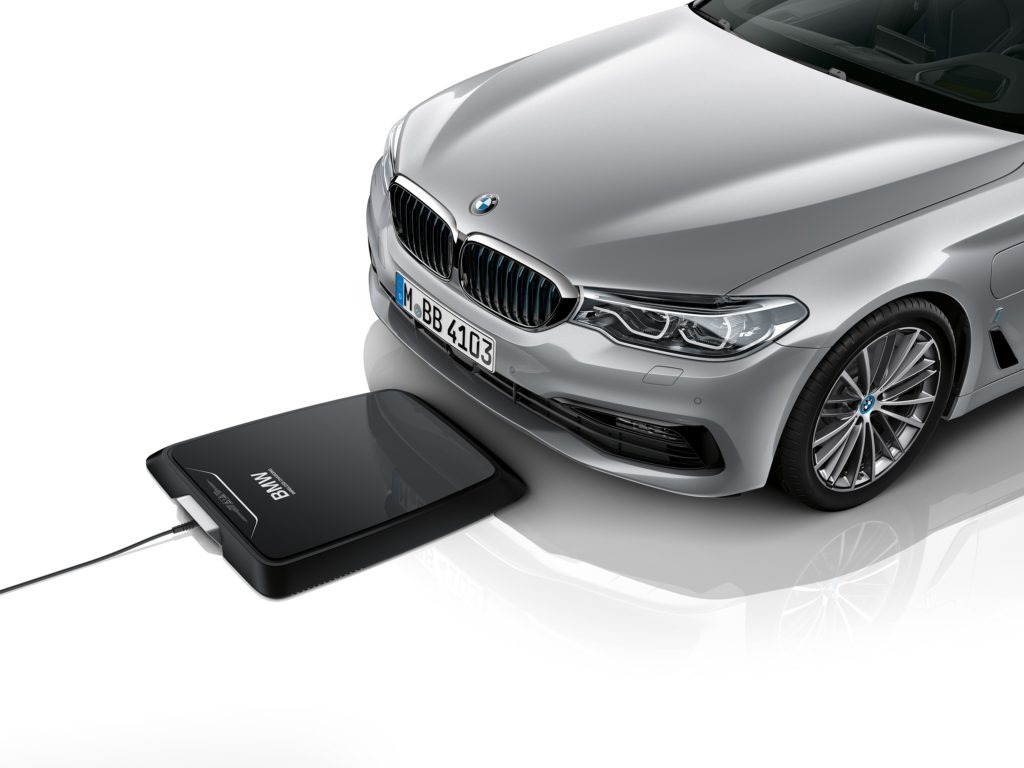BMW brings wireless charging to the US
13 August 2019

13 August 2019
BMW is to expand its inductive charging programme to the US following a launch in Europe last year.
The pilot programme, which began in Germany, will allow 200 private customers in California to charge their leased 530e models wirelessly in their garages. All costs, expenses and expenditures associated with the initial installation, maintenance and de-installation of the GroundPad Module are covered by the manufacturer.
BMW Wireless Charging enables transmission of electric energy from the main power supply to a vehicle’s high-voltage battery, without any cables, when the vehicle is positioned over the GroundPad. The charging process starts as soon as the vehicle parks in position, without any further input from the driver.
Conducting research
The system consists of an inductive charging station (GroundPad) and a secondary vehicle component (CarPad) fixed to the underside of the vehicle. The contactless transfer of energy between the GroundPad and CarPad is conducted over a distance of around three inches. The GroundPad generates a magnetic field. An electric current is induced In the CarPad, which then charges the high-voltage battery.
The system has a charging power of 3.2 kW, enabling a full charge of the high-voltage batteries on board the BMW 530e iPerformance in around three-and-a-half hours. With an efficiency rate of around 85%, the system is just 7% less efficient than conductive charging.
Important step
The move signifies the development of the technology and its importance, not just to BMW, but to the automotive industry as a whole. Wireless charging will remove the potential of additional ′street clutter’ associated with electric vehicle (EV) charging cables stretched between pillar and car. A recent Autovista Group poll saw nearly a third (31%) of people suggest that the uptake of wireless charging will appeal to motorists considering the purchase of an EV.
Several other institutions, manufacturer groups and national governments are investing in the development of wireless charging systems. From car parks to driveways, the technology offers a more convenient way for drivers to charge their vehicle without having to resort to additional external factors.
BMW’s programme will enable it to see just how popular the technology proves, how often it is used, and whether there are any issues that arise from the charging solution. The GroundPad is permanently monitored and will shut off if any foreign object enters its field. Through the trial, BMW will be able to see just how often, if at all, this happens.